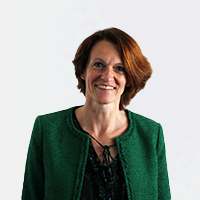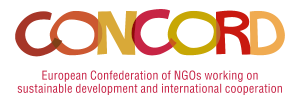
Tanya Cox
Director at CONCORD
CONCORD hosted our first ever Equality Day this month, at which many practitioners, EU officials and CONCORD members came together see what more we could do. Two messages came out loud and clear throughout the day. Firstly, that we need to adopt a sense of urgency. While a lot is said about the need to improve equality, and many key international institutions have made a variety of statements and commitments to this effect, in reality, we’re slow to turn words into meaningful, sustainable actions with lasting results for the world’s furthest behind. And, unless we’re very careful, the hallowed principle of Leave No One Behind, enshrined in the 2030 Agenda, will become a hollow slogan.
Secondly, in a globalised world, we’re only as strong as the weakest link. So the weakest link matters and we were forcefully reminded of that during the covid pandemic. Our globalised world has reinforced the systemic, interconnected nature of everything and everyone. Many issues we see – like migration, social unrest, climate change – have their roots in – and/or are causes of – inequalities. But we are all struggling both to challenge the system (the power, the privilege, the patriarchy, the deeply entrenched economic and political models) and even to take a systemic approach. It’s important to recognise that inequalities are not accidents of fate. They’re the result of deliberate choices made by people in positions of power.

The upside of that, of course, is that those policies and actions can be changed and the results can be reversed, which gives reason for hope. On a similarly positive note, all the participants in our panels and in our breakout groups highlighted ways in which we and the EU can do more, and better.
But it depends on political will: as they say, “where there’s a will, there’s a way”. Because the solutions aren’t easy and do need us all to reimagine how our systems operate and how we can do more than tinker around the edges of the issues.
CONCORD used the occasion of our Equality Day to launch the results of some research we conducted in three countries: Paraguay, Bangladesh and South Africa. We interviewed local communities involved in EU projects to find out what is making a difference.
Our partners were clear: the EU has an important role to play in putting topics on the table that their government is reluctant to deal with. However, there is also a lingering concern that – because their country may appear to be doing quite well from a GDP perspective – the EU may withdraw. However, those rosy GDP figures mask a whole host of inequalities which are actually growing (even if some income inequality is falling). For example, lack of access to basic services, discrimination, violence and so on remain really huge problems. And a sense of well-being is actually still a far-off dream for many, which once again proves that GDP and well-being don’t go hand-in-hand and we need to measure well-being!
Our partners shared with us ideas of what more the EU – and others – need to do, based on their experience. They told us that taking a multidimensional and intersectional approach is not an option: it’s a requirement for effective change! They told us that it’s crucial to make inequalities a specific priority, not an afterthought, and not only mainstreamed. So, for example addressing inequalities should be a criterion for every funding decision going forward, including those under the Global Gateway banner, which currently has a €300bn price tag attached to it. Engaging with communities is key to address their experiences of inequalities since the ways inequalities are lived and experienced by people varies a lot across regions and countries, and within countries and communities. And finally, our partners strongly advised the EU to focus on long-term change – systemic change takes time, so investing in the sustainability of projects and initiatives is very important.
All of these points seem obvious, but actually pose quite some challenges for the EU and its ways of working (and for the EU’s partners). Indeed, just to take the last point, policy-makers may think they are taking a long-term perspective in the proposals they make, but often it feels more as though they are reacting to the uncertainty and insecurity that are all around us these days. And uncertainty breeds short-termism. Taking a “cathedral thinking” approach has to go beyond election and funding cycles. It is key to solve the problems of inequalities.
We’ve got seven years left to reach the SDGs. And as far as inequalities are concerned – they’ve been made all the worse by the recent crises. So we need to pull out all the stops – collectively – to make sure we contribute to achieving equal, fair and inclusive societies in a sustainable world.









